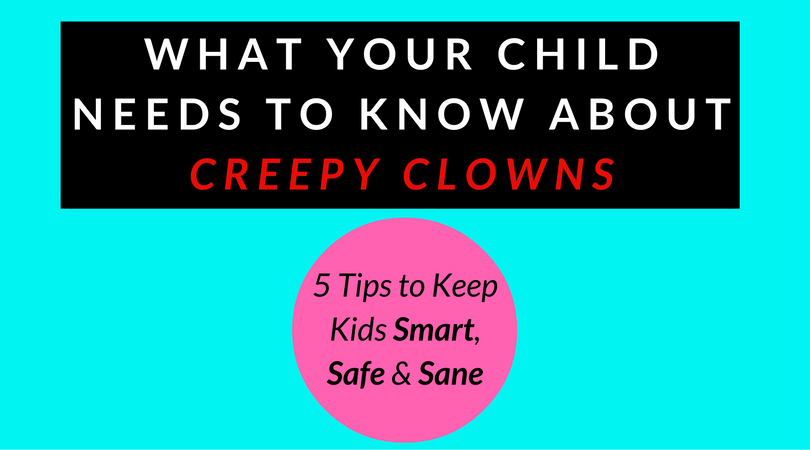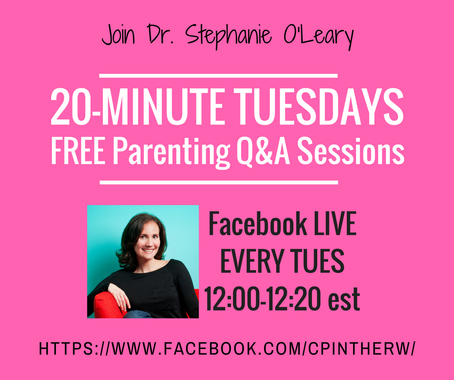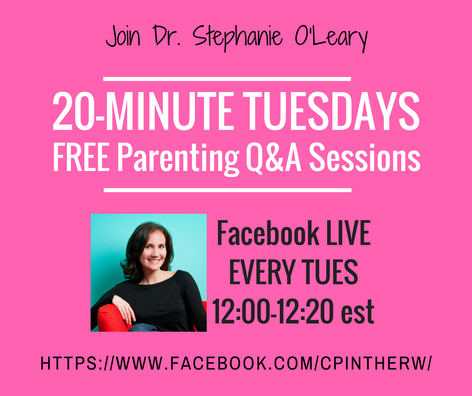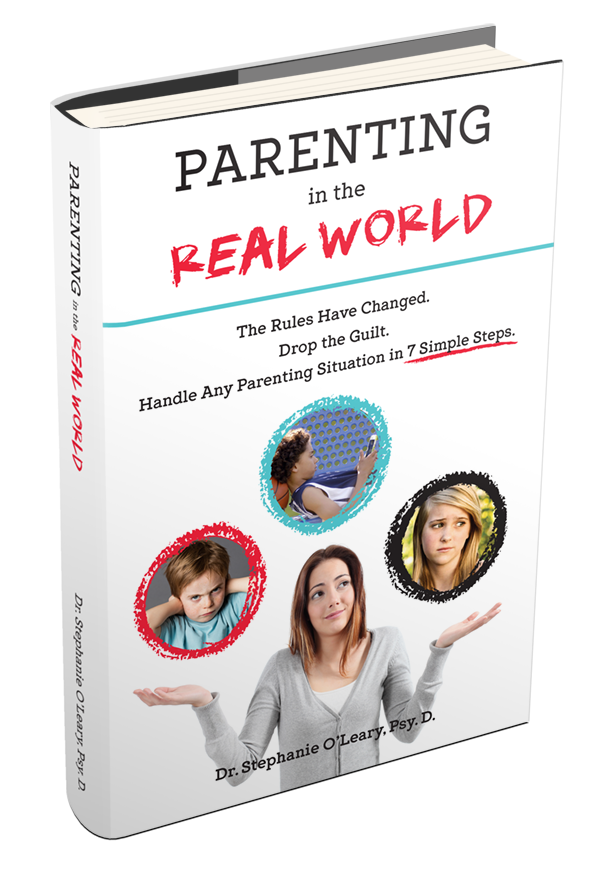|
Just in case your parenting plate wasn't full enough, now you have to deal with questions and concerns about creepy clowns. Personally, I wish they would just go away, join a circus, or find something more productive to do than stand around acting creepy. However, that seems unlikely, especially with Halloween just a few weeks away. So, what's a parent to do? Good question. Here are five things to make sure you cover when it comes to helping your child cope with creepy clowns (or anything creepy for that matter):
1. HONESTY IS THE BEST POLICY It may be tempting to change the subject or deny that there's anything to be concerned about, but most kids will hear about these creepy clowns at some point and it's important for you to keep your credibility. So, the best route to take as a parent is to be honest. Keep it simple by saying things like, "People are dressing up as clowns in some places and no one is really sure why," or, "Some people are making threats (or saying they'll do mean things) while dressed up like a clown." At the end of the day, being honest allows your child to trust you so when you step in to clarify misinformation you're more likely to be believed. 2. STICK TO THE FACTS While initial reports of were largely exaggerated, in the past few days there have been more serious incidents of creepy clowns doing harm. Encourage and help your child to "check the facts" and highlight that it's not smart to simply believe whatever you hear. This process empowers kids by giving them a strategy to fall back on. Partnering with you to seek out information will help cut through the chaos and anchor your child in what's actually happening. This is a much more productive approach than getting carried away with all the overwhelming possibilities. 3. CHECK YOUR EMOTIONS Creepy clowns are creepy, and when schools are the target of social media threats it's natural for parents to be alarmed. Here, it's important to remember that kids are like sponges ready and waiting to absorb the emotions surrounding them. Breeding hysteria will not help your child if they have to face a threat. So, instead of making extreme statements simply acknowledge your feelings and convey the message that you trust your child to make wise choices ("I don't like it that people are dressing like clowns and showing up randomly, but I trust that you will know what to do to keep yourself safe.") 4. SAFETY IN NUMBERS We've all heard this cliche, but it can be a lifesaver and this whole clown situation is actually a great opportunity to review basic safety skills. No matter what the threat (clowns or otherwise), sticking together makes sense. Remind your kids to stay with a friend or in a group when traveling in the community. If your child does have to travel alone, talk about ways to stay connected (such as having a phone conversation on speaker making sure that their eyes are alert and their chin is up) or make alternate arrangements to ensure that the buddy-system is in place. 5. REMIND KIDS TO SPEAK UP This is important on two levels. First, let your child know that you are always available to listen and that nothing they say or ask will upset you. This leaves the door open for continued communication on the subject and protects your child from the unnecessary anxiety that can develop if thoughts and feelings are bottled up. Second, give your child permission to speak up at school and in the community if they see something that does not seem right to them. Granted, a creepy clown is hard to miss, but kids are armed with instincts that may detect subtler signs of a threat and they should be encouraged to go to a trusted adult and ask for help (and to keep asking until someone listens).
Want to talk more about how to parent in the real world?
Join Dr. Stephanie O'Leary for this week's "20-minute Tuesday" Facebook LIVE Session. CLICK below. POST your questions. SHARE with friends. TUNE IN for real world answers.
0 Comments
Have you heard the buzz about homework and how it may be totally overrated? Many elementary school teachers are opting their classrooms out and even some prestigious high schools are doing away with homework requirements. This leaves lots of parents asking if all the worksheets, study guides, and projects really benefit students while simultaneously questioning how kids will learn to be responsible and disciplined without the age-old practice of doing homework. The bottom line is, homework continues to drive parents crazy no matter how you look at it!
So, what does the research tell us about homework? It says that age matters. Elementary school students really don’t benefit from homework. Middle schoolers show a modest improvement in academic achievement, but moderation is key and more homework is not better! Once kids are in high school, the benefits of doing homework are clearer (especially for math), but setting limits is still important since students who do more than two hours per night don’t necessarily out-perform peers who spend fewer hours hitting the books at home. Taking all of this into consideration, how do you help your child deal with whatever assignments come home on a given night? Here’s a quick parental cheat sheet organized by grade level: ELEMENTARY SCHOOL: No homework is A-Okay.
MIDDLE SCHOOL: One hour a day is MORE than enough.
HIGH SCHOOL: Homework matters (but don’t overdo it!)
Have question about homework? Want parenting answers that make sense in the real world? Check out Dr. Stephanie O'Leary's "20-minute Tuesday" Facebook LIVE Video below. |
Stephanie O'Leary, Psy.D.
Sharing practical strategies that help parents rediscover joy in their children (even when someone's crying, the phone is ringing, and it smells like the house may be burning down) Archives
October 2017
Categories |






 RSS Feed
RSS Feed